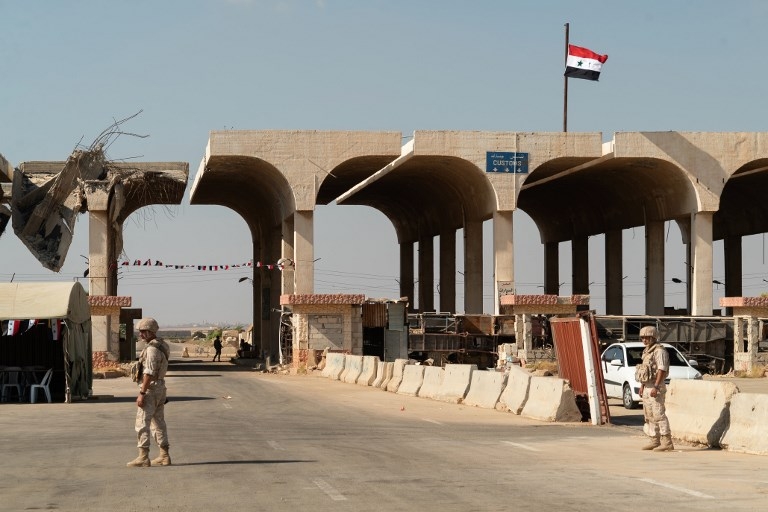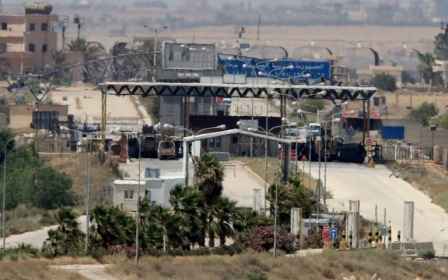Syria says it will reopen vital Nassib border crossing with Jordan on 10 October

Syrian state media said on Saturday the major Nassib border crossing with Jordan will reopen on 10 October, three years after the trade route was captured by rebels and closed.
The closure of the crossing in 2015 cut an important transit route for hundreds of trucks a day transporting goods between Turkey and the Gulf, and Lebanon and the Gulf, according to Reuters.
The reopening of the Nassib crossing would bring major relief to President Bashar al-Assad's government by restoring a much-needed gateway for Syrian exports to Arab countries, the Associated Press said.
Syrian troops captured it in July after rebels reached an agreement with Russian mediators to end the violence in the southern province of Daraa and surrender the crossing.
The fall of Daraa and recapture of Nassib marked another victory for Assad's forces and signalled the return of his troops to the province where the uprising against him began almost eight years ago, following successive military victories across most of the country with the help of powerful allies Russia and Iran.
The latest Syrian statement corrected an earlier one saying the restoration of the movement of trucks and goods through the crossing had already begun.
The Jordanian government had denied that assertion, saying the two sides were still studying the reopening of the border.
"Jaber Nassib crossing is still closed. It hasn't reopened yet for movement of goods and passengers," an official statement quoted Jordanian government spokeswoman Joumana Ghonaimat as saying.
Following the official denial by Amman, Syrian state media ran a new statement by the transportation ministry saying that "logistic preparations to reopen the crossing are now complete so that the Nassib border crossing with Jordan will reopen on the tenth of October and start receiving truck and transit traffic."
The Jordanian government, in its statement, did not set a specific date for an opening.
Lebanon's economy minister told Reuters in July the crossing was "a vital artery" for the Lebanese economy.
The Nassib crossing is of particular importance as it constitutes an important economic artery for neighbouring countries as the only outlet that links them with foreign markets for their agricultural products.
Billions of dollars in annual trade moved through the crossing in southern Syria before the fighting started in 2011, and its closure has hurt the economies of Syria and its neighbours.
"The opening of the crossing would positively reflect on all neighbouring countries," Abdul-Qader Azzous, a Syrian government adviser, told AP, adding it would benefit both Syria and Jordan by activating mutual trade.
The Syrian government would also collect transit fees from convoys coming from Jordan.
Earlier this week, Syrian Prime Minister Imad Khamis said all necessary steps had been completed to reopen the crossing, with investment in new infrastructure to be paid for by a sharp hike in duties, AFP reported.
"This crossing will be invested in according to our national interest. The customs fees were amended to achieve the interests of the Syrian state, increased from $10 to $62 for a four-tonne truck," AFP cited Khamis as saying.
In spite of retaking swathes of territory in successive Russian-backed offensives this year, Damascus still controls only half of the 19 crossings along Syria's lengthy borders with Lebanon, Jordan, Iraq and Turkey.
Middle East Eye propose une couverture et une analyse indépendantes et incomparables du Moyen-Orient, de l’Afrique du Nord et d’autres régions du monde. Pour en savoir plus sur la reprise de ce contenu et les frais qui s’appliquent, veuillez remplir ce formulaire [en anglais]. Pour en savoir plus sur MEE, cliquez ici [en anglais].




